On the morning of May 16, in response to Vietnam Science and Technology Day (May 18), in Hanoi, the Vietnam Union of Science and Technology Associations held a workshop on "Solutions to improve the quality and efficiency of operations of non-public science and technology organizations".
 |
Dr. Phan Xuan Dung, Chairman of the Vietnam Union of Science and Technology Associations, delivered the opening speech at the workshop. (Photo: PV) |
Speaking at the opening of the workshop, comrade Phan Xuan Dung, Party Secretary and President of the Vietnam Union of Science and Technology Associations, emphasized that our Party and State always attach importance to and highly appreciate the role of science and technology. Every victory of our revolution and people is associated with the valuable contribution of our country's science and technology, contributing worthily to the prestige and position of Vietnam in the international arena.
The year 2025 is of great significance to the Vietnamese scientific and technological intellectuals. That is, the Politburo issued Resolution No. 57-NQ/TW dated December 22, 2024 on developing the scientific and technological intellectuals in the new period, the Government issued Resolution No. 03/NQ-CP dated January 9, 2025 on the Government's Action Program to implement Resolution No. 57-NQ/TW and the National Assembly has just passed Resolution No. 193/2025/QH15 dated February 19, 2025 on piloting a number of specific mechanisms and policies to create breakthroughs for science and technology, innovation and national digital transformation; The Party Committee of the Vietnam Union of Science and Technology Associations issued Plan No. 16-KH/ĐULHHVN to implement Resolution No. 57-NQ/TW.
The above documents are important as the basis and fulcrum for bringing science, technology, innovation and national digital transformation into a new era of national development.
With 42 years of establishment and development, the Vietnam Union of Science and Technology Associations has affirmed its position and role as the nucleus to gather, unite and promote the creativity of a large number of Vietnamese scientific and technological intellectuals, making an important contribution to promoting the development of national scientific and technological potential, socio-economic development, maintaining national defense and security; making an important contribution to promoting research, application of science and technology in production and life, consulting, criticizing, propagating, disseminating scientific and technological knowledge, improving people's knowledge, training human resources and nurturing talents.
According to Mr. Phan Xuan Dung, in response to the activities celebrating Vietnam Science and Technology Day, the scientific workshop "Solutions to improve the quality and efficiency of non-public science and technology organizations" aims to further develop non-public science and technology organizations in the system of the Vietnam Union of Science and Technology Associations.
Contributing ideas on solutions to improve the organizational capacity, apparatus and operational efficiency of non-public science and technology organizations under the Vietnam Union of Science and Technology Associations, Dr. Pham Van Tan, former Vice President of the Vietnam Union of Science and Technology Associations, said: According to preliminary statistics up to 2020 from the Ministry of Science and Technology, the country has more than 3,000 science and technology organizations, of which more than 2,000 are non-public science and technology organizations, of which 30% are organizations under the Vietnam Union of Science and Technology Associations.
The scientific and technological organizations under the Vietnam Union of Science and Technology Associations are an important element, gathering a large number of laborers in society, mainly intellectuals, including a large number of experts and scientists of many ages and working environments.
These organizations have made many contributions to the application of science and technology to serve the socio-economic development of the country, which have been recognized by the authorities and society. However, currently, the science and technology organizations under the Vietnam Union of Science and Technology Associations still face many difficulties, obstacles and limitations.
 |
Dr. Pham Van Tan, former Vice President of the Vietnam Union of Science and Technology Associations, spoke at the conference. |
Based on the above reality, in order to improve the organizational capacity, apparatus and operational efficiency of non-public scientific and technological organizations, the Vietnam Union of Science and Technology Associations needs to continue to proactively advise and propose to the Party, the State and relevant authorities to research and perfect mechanisms and policies to institutionalize the Party's guidelines and resolutions on science, technology and innovation, public services, and building a team of intellectuals, creating conditions for non-public scientific and technological organizations to have access to funding from the State budget for science and technology, accelerating the process of socialization of public services, transferring these activities from State agencies to non-social organizations.
At the same time, the Vietnam Union of Science and Technology Associations needs to continue to enhance the position and role of the Vietnam Union of Science and Technology Associations in the political system, to be a reliable political support for the scientific and technological intellectuals in general and for the affiliated scientific and technological organizations in particular.
As a socio-political organization assigned by the Party and the State and as the governing body, the Vietnam Union of Science and Technology Associations needs to support its affiliated scientific and technological organizations in connecting and guaranteeing with competent authorities at the central and local levels to create conditions for scientific and technological organizations to seek cooperation partners and expand markets in professional and technical activities...
According to Mr. Trinh Le Nguyen, Center for People and Nature, in the period of development based on knowledge and innovation, science and technology play a central role in enhancing national competitiveness, solving social challenges and promoting sustainable development.
In addition to the system of public institutes, schools and organizations, non-public scientific and technological organizations, especially non-profit organizations, have been playing an increasingly important role in diversifying research subjects, connecting the community with science, transferring knowledge and mobilizing social resources. However, the development of this sector still faces many institutional obstacles, stemming from legal loopholes and administrative management thinking.
One of the biggest shortcomings is the lack of a legal framework that clearly recognizes and classifies non-profit scientific and technological organizations. These organizations are currently not specifically identified in the Law on Science and Technology or related laws, leading to their being grouped with for-profit enterprises. Therefore, they cannot access corporate income tax incentives, are not exempted from import tax on research equipment, and do not receive financial support from the State budget.
In addition, access to state-level science and technology tasks still faces many barriers from capacity conditions, task registration procedures, to financial management mechanisms. Most public research programs are allocated through appointment or administrative processes, which lack transparency and are not based on actual capacity.
Based on the above practices, it is necessary to amend the Law on Science and Technology and sub-law documents to clearly identify non-profit science and technology organizations, distinguishing them from for-profit science and technology enterprises. From there, build appropriate incentive mechanisms on taxes, finance, land access and research tasks, etc.
It is necessary to develop a cooperation mechanism for enterprises and non-public scientific and technological organizations with specific incentive policies, such as tax deductions for funding scientific research, application, and innovation for the common purpose of society. It is necessary to strengthen policy dialogue, regularly solicit opinions from non-public scientific and technological organizations in the process of law-making, research planning, as well as issuing executive documents. There should be an official consultation channel and an independent scientific policy review mechanism.
In a global context where the role of science, innovation and public knowledge is increasingly emphasized in solving development problems, facilitating the effective operation of non-public science and technology organizations should not be seen as just a policy option, but as an essential part of the structure of the national science system.
When fully recognized and properly supported, these organizations can play a significant complementary role to the public sector, contributing to expanding the scope of applied research, connecting communities with science, and increasing the capacity to critique policy from a societal perspective.
Source: https://nhandan.vn/nang-cao-chat-luong-hieu-qua-hoat-dong-cua-cac-to-chuc-khoa-hoc-cong-nghe-ngoai-cong-lap-post880176.html




![[Photo] Prime Minister Pham Minh Chinh chairs the meeting of the Government Party Committee Standing Committee](https://vphoto.vietnam.vn/thumb/1200x675/vietnam/resource/IMAGE/2025/8/23/8e94aa3d26424d1ab1528c3e4bbacc45)


![[Photo] General Secretary To Lam attends the 80th Anniversary of the Cultural Sector's Traditional Day](https://vphoto.vietnam.vn/thumb/1200x675/vietnam/resource/IMAGE/2025/8/23/7a88e6b58502490aa153adf8f0eec2b2)




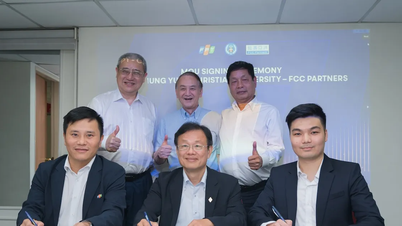

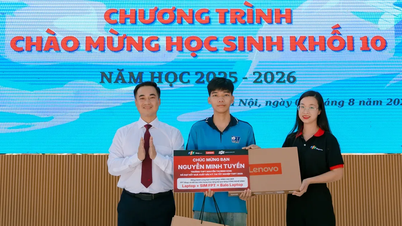

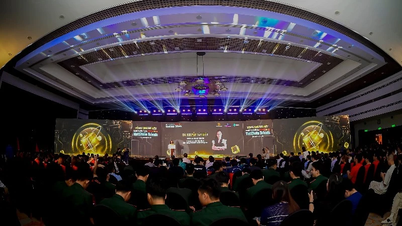




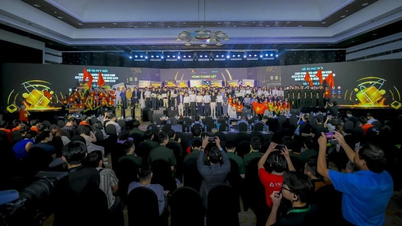
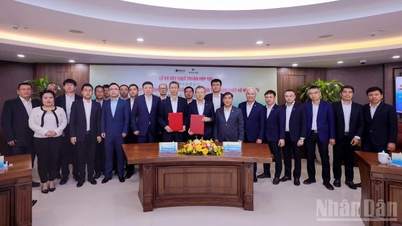
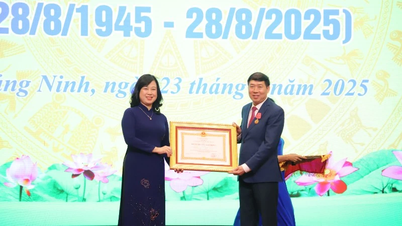
![[Photo] Prime Minister Pham Minh Chinh chairs the meeting of the Government Party Committee Standing Committee](https://vphoto.vietnam.vn/thumb/402x226/vietnam/resource/IMAGE/2025/8/23/8e94aa3d26424d1ab1528c3e4bbacc45)
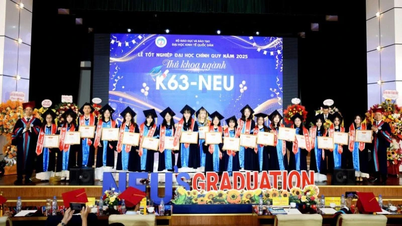












































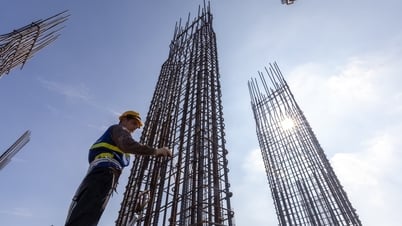



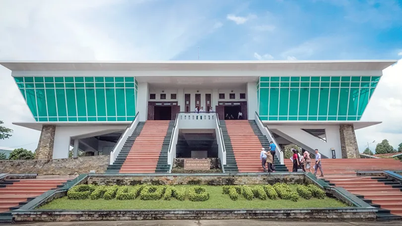


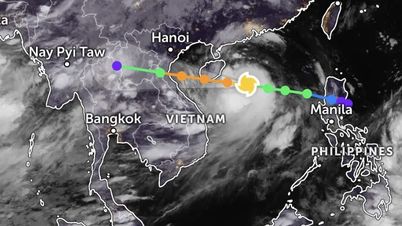
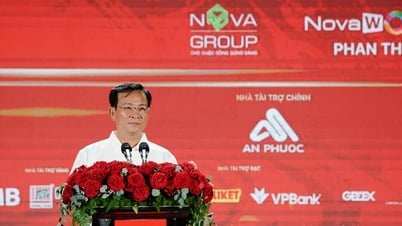
















Comment (0)